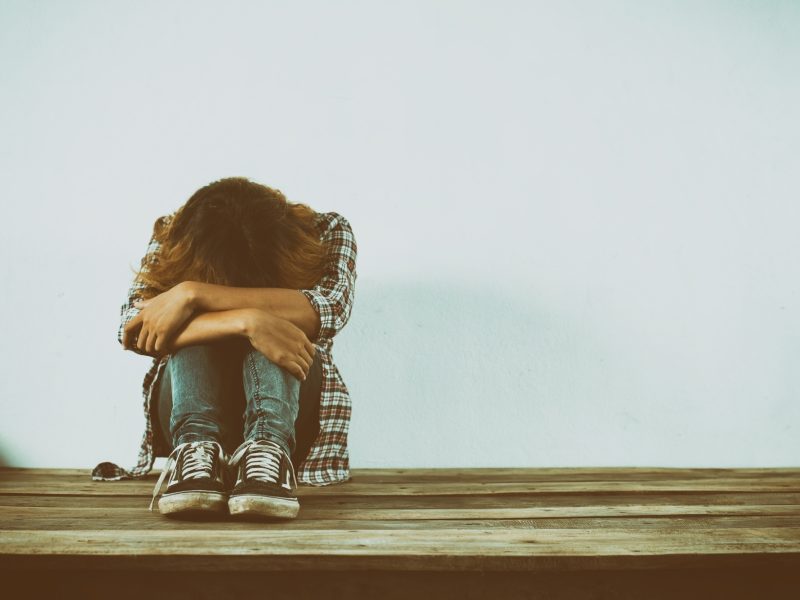Human Dignity & the Consequences of Child Sexual Abuse
by Barbara Te Miha - for the Christchurch Catholic Commission for Justice & Peace
17 September 2023

The dignity of the human person is the foundation of all Catholic Social Teaching. It teaches us that a just society can become a reality only when it is based on the respect of the transcendent dignity of the human being. The social order and its development must invariably work to the benefit of the human person.1
Catholic Social Teaching requires us, then, to take responsibility for our lives, for the well being of our neighbours, and for the common good.
Pope John XXIII spelt this out clearly to us when he wrote, “Those therefore, who claim their own rights, yet altogether forget or neglect to carry out their respective duties, are people who build with one hand and destroy with the other. Since human beings are social by nature, they are meant to live with others and work for one another’s welfare.”2
When we look at the rights of children, the Church’s social doctrine constantly points out the need to respect the dignity of children, more, that the rights of children must be legally protected within juridical systems. We are further admonished that it is essential to engage in battle, at national and international levels, against the violations of the dignity of boys and girls caused by sexual exploitation, by those caught up in paedophilia, and by every kind of violence directed against these most defenceless of human creatures.3
Here in Aotearoa, New Zealand, Catholics continue to despair over the never ending revelations of abuse emanating from within their institutions. It seems implausible that these institutions, supported and revered by Catholics, were capable of the callous disregard shown to the most vulnerable of children.
“The measure of every institution is whether it threatens or enhances the life and dignity of every person within that institution. Each and every one of us has the power and means to defend the dignity of other people. It does not and should not rest solely on the government or on leaders of the community.”4
A child sexually assaulted by a member of the clergy or religious, a person the child accepts as a representative of God, will consequently feel violated by God. God, the recipient of the child’s prayers, the source of our greatest comfort and peace, then becomes the stuff of nightmares. There is a complete loss of faith.5
Traumatic experiences during childhood often explain the overall risk for suicidal ideation and actions later in life. Evidence exists that suggests that child sexual abuse increases precocious adolescent sexual activity, drug abuse, depression, and personality problems. Victims may suffer flashbacks, nightmares, may self harm, and become adults suffering from PTSD - post-traumatic stress disorder. Indeed, adult survivors may still be dealing with the impact of the abuse, affecting their psychological and physical well-being, and impacting on relationships causing difficulties in forming intimate relationships. They may find difficulty in talking to partners or whānau about the abuse, therefore preventing others being able to help or offer support.
The words of Jesus have been with us for over two millennia, “If anyone causes one of these little ones - those who believe in me - to stumble, it would be better for them to have a large millstone hung around their neck and be drowned in the depths of the sea.” 6 But even these sacred words were not enough to rein in ‘the feral men of Sodom’ from cruelly abusing the children in their care.7 The physical, mental, and spiritual harm done to children in the past continues to haunt their adult lives today.
We have a duty of care to ensure the safety and dignity of our tamariki, in our homes, our schools, our churches, and in our institutions. We can start by coming together in solidarity at Safeguarding Workshops within our diocese, working towards making safe and peaceful communities.* We are all accountable.
Ehara tāku toa i te toa takitahi engari he toa takitini. My valour is not that of the individual, but that of the multitude. No one can survive alone
1. Compendium of the Social Doctrine of the Church.
Chap 3: 132.
2. Pope John XXIII, Pacem et Terris, 30-31.
3. Compendium of the Social Doctrine of the Church.
Chap 5: 244, 245.
4. Bernard Evans, Lazarus at the Table, Chap 2, Pg 24.
5. Bishop Robert Barron, Letter to a Suffering Church,
Chap 1, Pg 7.
6. Gospel of St Matthew Chap 18:6.
7. Bishop Robert Barron, Letter to a Suffering Church
Chap 2, Pg 22.
* Safeguarding WORKSHOPS (cdocsafeguarding.nz)
